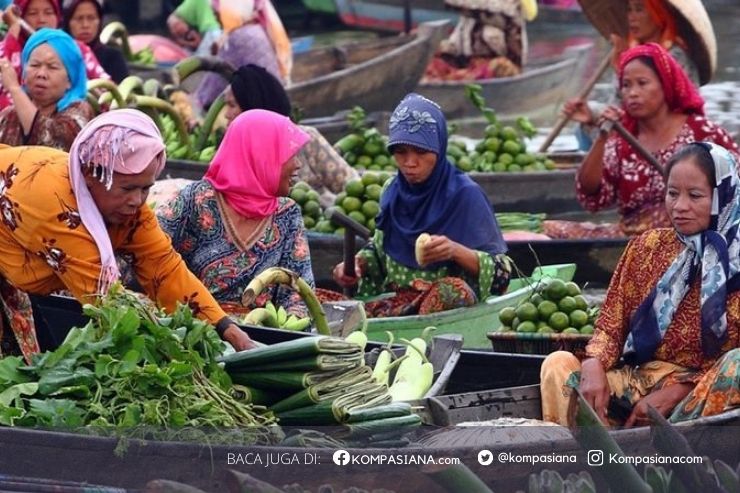A sharp look at Indonesian government subsidies from a journalist’s eyes Indonesia is the world’s second largest exporter of liquefied natural gas, most of it is used for power generation. However, nearly 80 million Indonesians, a third of the population, still live without electricity. Indonesia is the world’s fourth largest producer of coffee, the third largest producer of cocoa, and the second largest producer of tin. Still, one in seven Indonesians lives below the poverty line. What is wrong here? The answer is complex. But Dandhy Dwi Laksono, an Indonesian investigative journalist, is successful in straightening out much of the complexity. In his book Indonesia for Sale, Dandhy breaks it down through conversations between himself and imaginary people on street, including taxi drivers and parking attendants. He also tosses in a few conversations with real people such as his fellow journalists, and even himself. Anyone who lives in Indonesia, whether real or imagined, would be familiar with their questions and concerns. Dandhy’s works have been always about addressing people’s curiosity. His story about the assassination of the activist Munir, a case that remains unsolved, was named best report by Indonesia’s Alliance of Independent Journalists (AJI) in 2008. In the same year, his documentary about illegal logging in Leuser Edge in Aceh won the British Council Broadcast Competition. Indonesia for Sale takes place in 2009, during Indonesia’s presidential campaign. At that time, many people protested the candidacy of Boediono for vice president, calling him a fan of neoliberalism. The word neoliberalism was suddenly popular in conversations, on television talk shows and in coffee shops. It was simply understood as privatization. But did people really know what the word meant? Some experts argued that it was not important for people to understand what neoliberalism meant, that talking about how to create jobs and provide food was more essential. Dandhy disagrees. If it was enough to have a stable political environment and good economic growth, why did Indonesians bother removing Soeharto? Keeping people, whether they are an office boy or a lawyer, from understanding such issues is like bribing children with candy: you stop them from crying without learning what they really want. Soon or later, they will cry again. The media in Indonesia has enjoyed its freedom only since Soeharto fell in 1998. It has broken many big stories during this period. However, Dandhy finds the media still lacking in deep analysis at a time when people are hungry to learn. And this is one of the main goals of the book: to tell stories from many points of view, so people will understand their options and eventually make up their own minds. The book begins with a chapter about the price of fuel. There are many oil wells in Indonesia, pumping around 950,000 barrel of crude oil a day. At the same time, about 1.6 million barrels of gasoline is consumed everyday in the country. However, the fuel price is hardly considered affordable for most Indonesians. Why? Dandhy explains this, step by step, in a talk with one of his fictional characters, a taxi driver. “Because the oil price is determined by the international market price,” Dandhy begins. When the global price rose, he explains, the government became overwhelmed trying to keep up with the subsidy, so they decided to phase it out. This made many Indonesians – 60 percent of them live less than US$2 a day -- struggle to survive. Why can’t Indonesia be independent in determining its own price? A big problem is that most crude oil pumped in Indonesia is not refined here. It is a matter of investment priority, Dandhy says. The government should have prioritized refinery development and focused this development for national needs. And, importantly, the fuel subsidy should not have been removed. According to the government, the subsidized fuel has mainly been benefited by those people in the higher economic brackets, in other words, those who own cars. And so why keep the subsidy while this money can be better used for other programs that are needed by poor people? In Dandhy’s analogy, though, removing the fuel subsidy is like trying to catch big fish by exploding a coral reef: Both big and small fish are killed, the ecosystem is damaged, and the sea is polluted. But the government can actually recoup the fuel subsidy from wealthier people through taxes without taking it away from those who really need it. The same remedy could be applied to subsidies for other sectors, such as education and healthcare. It is a popular belief that subsidies are a strain on government finances. But Dandhy argues, again and again, that subsidies should be seen as investments for the government, not burdens. He points to inefficiency as the real strain on the budget. The way that the government pays its officials is an example of this inefficiency. The state pays them every month, but they also receive money from development projects that they approve, even though approving projects is actually part of their job. The total of this extra money can be bigger than their monthly salary. Sadly, it is legal. Subsiding soccer teams is another example of inefficiency. The budget for these teams is sometimes bigger than that for local community health centers or schools. Out of 76 soccer clubs in Indonesia, only 4 pay their own way, the other 72 still depend on the regional budget. In one year, the subsidies for these clubs can reach Rp1.8 trillion, or around US$ 194 million. One of Dandhy’s creations is a man called Bejo, a father with an income Rp1 million, about US$100 a month. Bejo struggles every day just to afford school, transportation, and healthcare. In real life, there are many like Bejo. Another of his characters is a pedicab driver. Dandhy challanges the reader to understand how impossible it is for a pedicab driver to be productive and independent if he cannot afford healthcare. People like these can barely afford anything else such as shirts, shoes, or books. It is a situation that keeps businesses from growing and increases unemployment. Dandhy describes the poor transportation system as a circle of poverty. It drags down people’s quality of life. It causes them to waste too much time and money on the street. People do not have enough time to rest or to take on a side job. Many people in Indonesia have to spend a great deal of creative energy just to figure out how to pay for their transportation to work. The survey by Japan International Cooperation Agency (JICA) in 2008 shows that nearly half of Indonesians living in the Jakarta area spend between 10 and 20 percent of their income for transportation. A further 16 percent spend even more, between 20 and 30 percent. This is in contrast to the World Bank’s study that recommends people in developing countries to spend less than 10 percent of their income for transportation so they can cover other expenses such as food, education, and healthcare. What will happen to Indonesia in the next 25 years, especially considering that most of the current generation are only high school graduates because they cannot afford a university education? Is the country satisfied to only sell its assets, such as crude oil and coffee, without being able to process it with technology? Are 230 million Indonesians prepared to be consumers only instead of a collection of productive people? Is Indonesia for sale? Investing for the future is the book’s central message. This kind of investment cannot be seen from the perspective of profit and loss as if the nation is a business. It cannot be handed over to private sector that will never see protecting the public interests as their primary task. Dandhy urges the reader to see it this way: imagine the power that 230 million Indonesians can create if they have easy access to education, healthcare, and transportation. However, one question remains: how to trust the government to carry on this job? The media has a key role here as this is where people’s concern and criticism have a voice. The media is the instrument to change a long and widespread culture of corruption. It is the very reason why Soeharto controlled the media for years. Although the media in Indonesia is still finding its way, Dandhy wishes for all journalists to understand and strive for this role. Kamellia Soenjoto Smith










